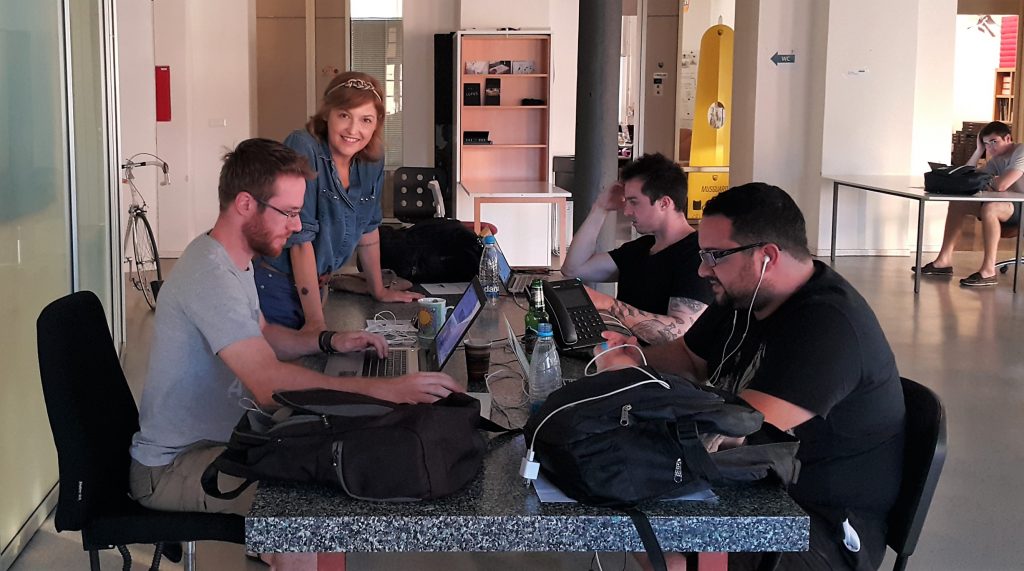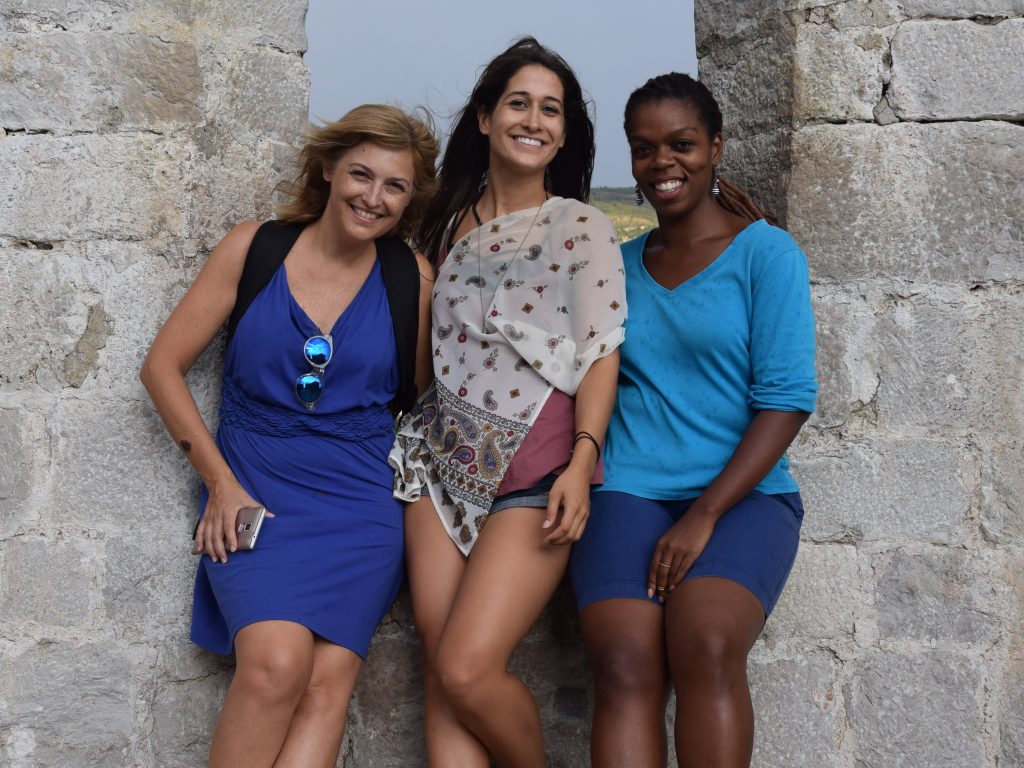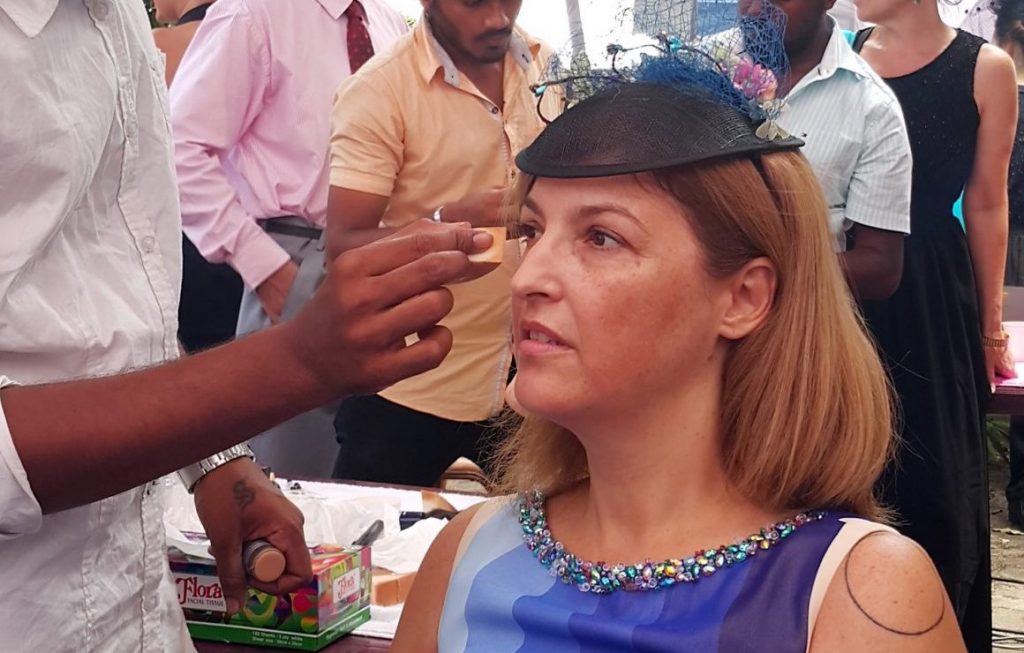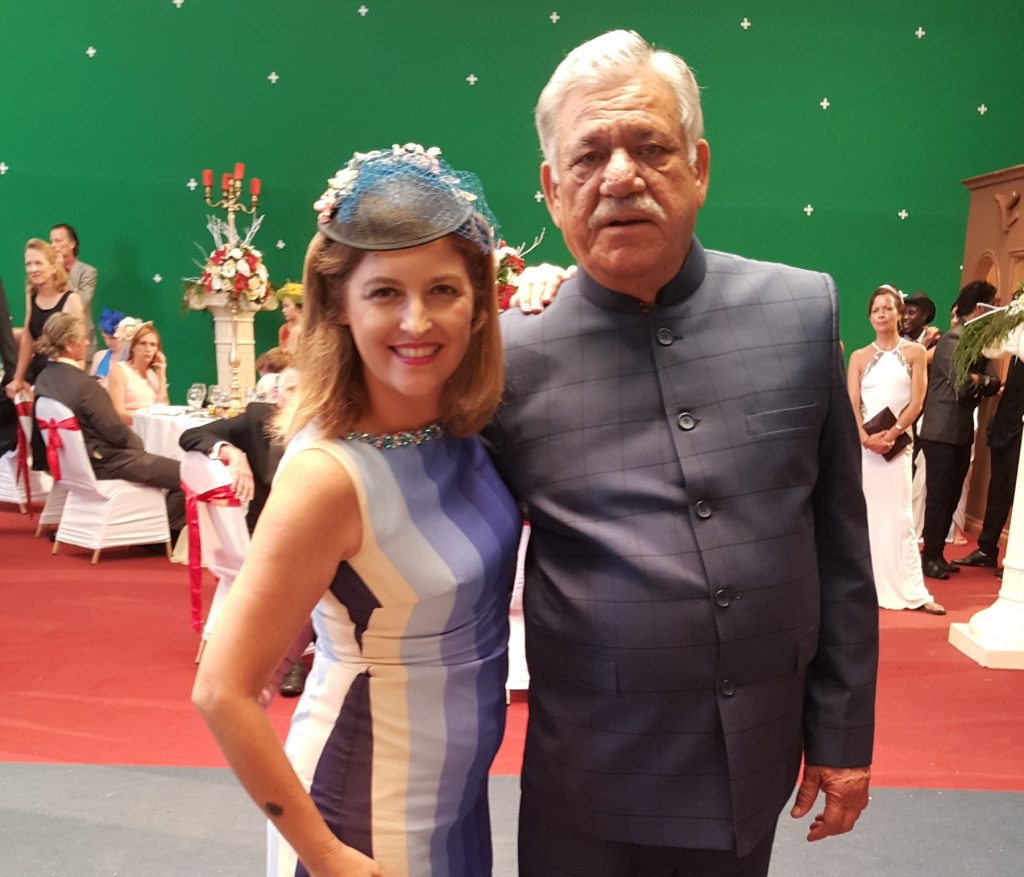1. Hey, can you please introduce yourself?
Hi! My name is Fernanda Prats. I’m from São Paulo, Brazil, and my story with remote working is quite different from what I’ve been hearing.
So, if there’s something holding you back from embracing this lifestyle or you feel curious about how a fashion stylist barely familiar with technology could turn into a digital nomad, check out how I passed through the bumps in my journey 😎.
Now I am comfortably working as a freelance writer and translator. My clients are international companies that want to reach the Brazilian audiences with tailored content or, at least, convey the meaning of their texts in a way that sounds originally written in my native language.
Yes, machines could also “translate” that, but they fail in providing genuine and accurate results. Therefore, I specialize in what’s called written translations – taking text to the next level by localizing, proofreading, trans-creating & editing for SEO purposes.
2. What motivated you to choose remote working?
Let me tell you about my old routine to help you understand why a fashion stylist felt happy getting rid of tonnes of shoes & clothes, make-up & accessories, as well as the car and apartment.
Most days, I would be at a photoshoot or filming session. Forget about glamour for a moment. Think non-stop running back and forth to please everyone on set with the outfits that I’ve selected for the job. And that’s the part I liked most about that career, together with writing a monthly column for a magazine.
On other days, I was visiting dozens of PR agencies, showrooms & shops, taking and returning collections, attending long in-person meetings and fancy events to make PR guys happy. Always involved in a lot of projects, I had to constantly deal with overlapping schedules.
I also had to be super flexible and forever ready (aka no time for personal life), since the sessions’ dates and work conditions could be updated anytime due to bad weather, new ideas that popped into editors’ or client’s minds, crazy celebrities’ requests… well, you name it!
I feel exhausted just to write about it! 😫
This lifestyle didn’t leave me with any mind space to even think about changing it. I was either tired or wired all the time; but I could afford amazing trips. That was the sparkle for me.
Getting out of this craziness felt so great that my vacation breaks became longer, and l decided to look for a better match of travel, work and play.
In May 2015, I started living a new experience as a digital nomad instead of dressing actors and models to make a living. It took me a while to reshape my career, but I believe writing and translating remotely is the perfect fit for me.
3. What were your initial months like? Did it live up to your expectations?
Tough. And brilliant.
My only experience with remote work till the abrupt career change was writing about my travel findings for a famous blog network. And that was something casual; kind of an excuse to have my vacation time extended.
I decided to fully embrace this kind of a job and soon read about Remote Year’s launch. Then I bought a one-way ticket to join a project that even the founders were still figuring out. Anyway, I took the plunge, feeling happy for being the only Brazilian woman approved for the initial group.

A couple of weeks after my adventure started, Brazil entered a huge crisis. Our currency plummeted. Everything became 5 times more expensive for me, since I was paying for my living in dollars and euro.
Things got worse when the producer, who hired me as an international correspondent, lost the sponsor — in turn, I lost my job 🙁. It took me a while to come to terms with this, but it was a great learning opportunity for me. You’ll understand it in a bit.
4. How did you find remote working roles?
In the beginning, I was very focused on working for Brazilian clients. I thought about my language as a barrier, so I didn’t put enough effort into platforms for international talents.
I kept writing my column and using my contacts with editors to land some jobs for websites and blogs. I also joined two girls from RY’s group to create a content agency called “Trio Travel Marketing”. We landed a great campaign (and earned lots of euros) for our first client, the Slovenian tourism board.

That wasn’t a fully remote work situation and it was difficult to repeat the success in other countries. After all, Remote Year only settled us for a month in each place — not much time for making local contacts and getting the chance to work our magic everywhere.
On the bright side, I felt confident about my ability to reach international clients and choose my own way of living 😃. Those were my reasons to leave Remote Year’s program and travel alone at my pace.
I kept forming local partnerships to cover my basic expenses while working remotely in the first projects, studying and enjoying my life. Only a couple of years ago, I could become fully location independent, counting on Upwork to find the best opportunities and meeting clients based in Australia, Spain or Canada (as the ones hiring me right now).
5. What have been the best, good and worst aspects of remote working for you?
The best aspect of remote working is having the chance to immerse in other cultures and living authentic experiences. That’s exactly the purpose of my career change.
The good aspect is learning that I can reinvent myself and work from anywhere. Every little achievement makes me feel stronger on this road, and now I have a network of friends and colleagues across the globe.
I still don’t make a lot of money; not as much as the styling jobs for advertising provided me anyway 😑. But I guess the worst thing about being a remote worker could be defined by a word in my language: saudade.
That means missing someone or some place, feeling a little blue or nostalgic — and happens not only when I am traveling but also when I’m working from home.
6. What tools do you swear by while working remotely?
I’m a tech-illiterate who learns what’s needed on the go, and that’s basically for time management, work organization, word processing and communications.
Therefore, the tools I use most are as simple as Upwork, Trello, WordPress, Google Drive, Zoom, Slack and Canva. Oh, and I am required to use tools like Poedit, Matecat and Crowdin in some of my translation jobs as well.
7. Your most exciting/ hilarious experience since you started working remotely.
I could never imagine myself cycling between beaches in Sri Lanka with my laptop in the backpack. But my most hilarious experience as a remote worker took place in a studio in that country, when I revived my days working behind the scenes.
However, I switched to the front of the cameras. SOMEONE ELSE STYLED ME, in a party dress from I-don’t-know-what-age that definitely wasn’t the right one for the scene 😆. Anyway, I was just an extra on a Bollywood movie, doing it to make some “extra” cash.

I improvised and added a pocket to hide my smartphone in the fabric to keep doing my “real” work remotely, during the long breaks of the film session!

8. What is your golden advice to a new remote worker?
Can I split this answer in a trio? Here’s my 3 tips for those starting to work remotely:
- It can be hard landing the first jobs, or maybe you’ll just have easy tasks at first. Don’t let this discourage you. Do it as if you’re working on your dream job — you’ll get your boss or client’s confidence to advance in your career.
- Always be polite and careful when you’re communicating. Most of the time, you won’t be able to see the real reactions of the people you’re working with.
- When you feel like procrastinating, allow yourself to be unproductive for a limited period, say take a morning off (when you’re not on a tight schedule, of course). Sometimes you also need a reboot 😅.
9. How do you see your career shaping up and your goals?
When I embraced the digital nomad lifestyle, I didn’t have all my eggs in the remote work basket. That’s the way a non-techie person like me could afford to be selective about the quality of requirements and the client’s history before taking ANY job.
Soon I became a top-rated professional and developed an amazing work relationship with my regular clients and colleagues. This translated into recommendations and great challenges, like authoring a special column on Canva’s Brazilian website and even landing content partnerships for my travel / lifestyle blog.
Now, my goal is to keep evolving my ways to work remotely and move as far as I want. Literally or not.
10. How do you expect remote working to evolve in the future?
I’m a strong believer in the power of expertise sharing. There will always be a lot of “little somethings” that technology will never be able to provide us. It can rather help us connect with the right people to do it, from anywhere in the world. And with less stress involved. That’s how I envision our evolution. 🤔
I can’t predict which futuristic tools we will be using to work remotely but I already see us moving towards a more sustainable lifestyle, simply by not having to commute daily.
11. Where can we follow you on?
Blog: https://pratserie.com/ (I have some articles in English, check it out)
Instagram: https://www.instagram.com/pratserie/
Twitter: https://twitter.com/fernandaprats
LinkedIn: https://www.linkedin.com/in/fernandaprats/
Upwork: https://www.upwork.com/o/profiles/users/_~0109d262503ec8bdde/
Are you a remote worker too?
Would you like to share you story?
Just reach us at hrishikesh@remote.tools!